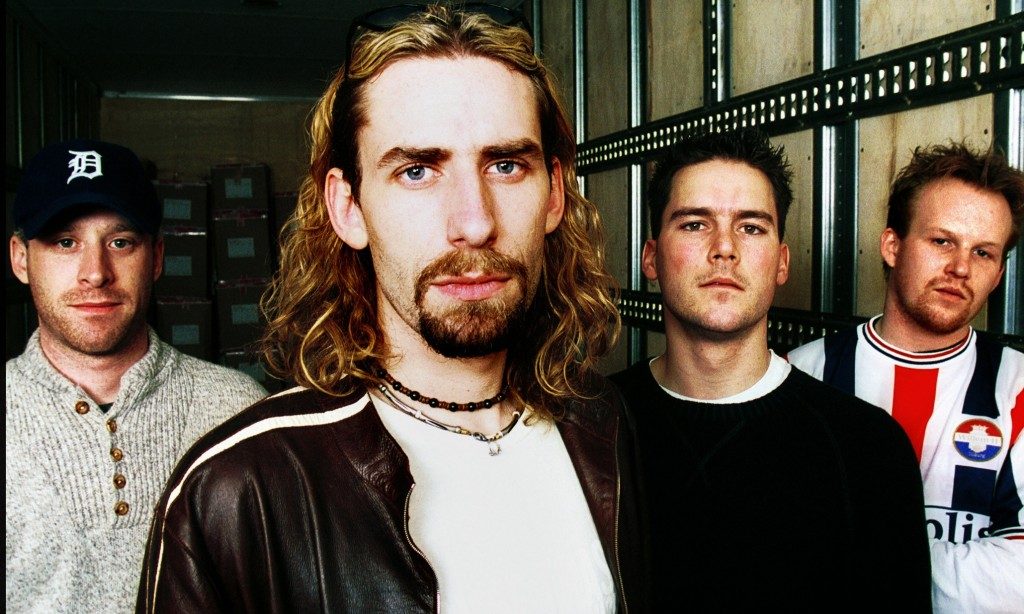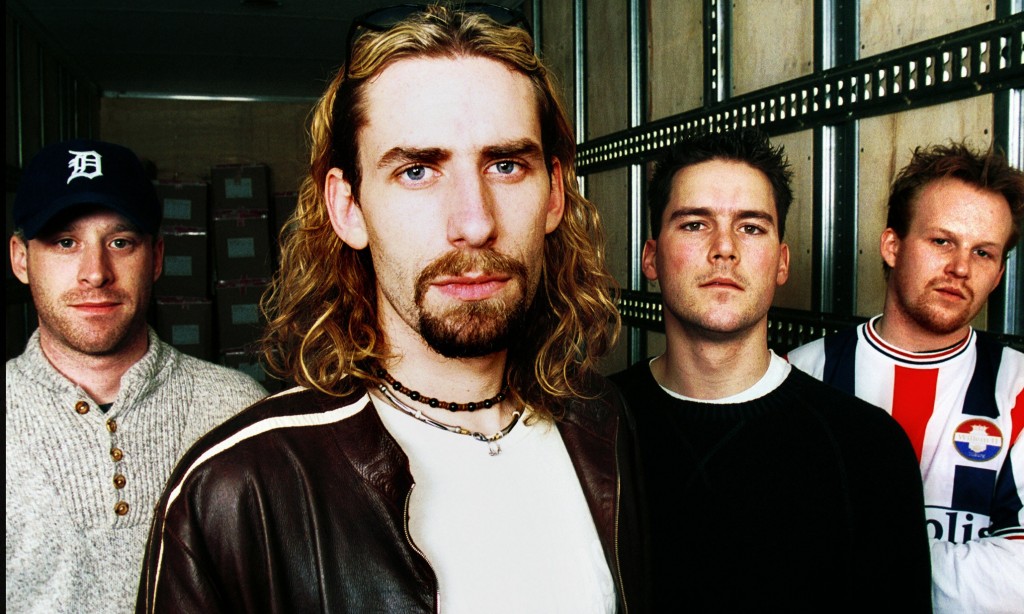
The cultural phenomenon of making fun of Nickelback
By Caroline Ho, Arts Editor
There might be no truer Canadian pastime than hating Nickelback.
Their wannabe-angsty lyrics, their slew of Billboard-charting hits that all sound basically the same, and frontman Chad Kroeger’s hairstyle that is reminiscent of old ramen all make the band so easy to mock. But for all the flak they get, it’s hard to deny that they must be doing something right, seeing as they’ve been commercially successful on a large scale since the early 2000s. When and why did we start deciding that hating Nickelback was the cool thing to do?
The band’s been subject to some scorn since its early days. Formed in Alberta in 1995, Nickelback signed in 1999 with EMI Canada and with Roadrunner Records in the US, a predominantly hard rock and heavy metal label. Even though early Nickelback music is somewhat heavier and grungier than their later “radio-friendly” fare, they’re still nowhere near other Roadrunner acts like, say, King Diamond or Slipknot, so right off the bat metal fans were incredulous of the band.
Of course, Nickelback hate couldn’t become popular until Nickelback themselves gained mainstream attention. In Canada, some of their early success came from CRTC regulations requiring at least 40 per cent of music on radios to be Canadian content. However, on both sides of the border, the band really shot to success with their 2001 album Silver Side Up and its lead single “How You Remind Me,” which received several Juno awards and was named by Billboard as the most played song of 2002 in the US. The song drew from watered-down aspects of ’90s grunge, aided by Kroeger’s slightly hoarse vocals singing lyrics about relationship angst, and transformed their form of grunge into a more relatable format. The sound certainly worked for one song, but when the band released “Someday” in 2003, the lead single off their next album, a lot of listeners thought it sounded far too similar to “How You Remind Me.”
Widespread disdain for the band started to take solid shape around this time. Between 2002 and 2004, Comedy Central repeatedly ran an ad for the show Tough Crowd with Colin Quinn where a comedian made a quip about detesting Nickelback. From there the sentiment became increasingly normalized, and hating Nickelback became a cultural norm.
The band’s own attitude toward their fame/infamy only bolstered the trend. Kroeger himself has acknowledged in interviews that he’s tried to write music that’s as catchy as possible by taking the elements of top hits from other successful artists. To a lot of critics, this only succeeded in making the group as bland and fake as possible. Then in 2006, Nickelback released the single “Rockstar,” a song about the most hedonistic, materialistic, inauthentic aspects of a famous musician’s lifestyle. The band has claimed that the song is meant to mock the very image Nickelback seems to represent, but to a lot of listeners, the song isn’t self-aware so much as it is ironically terrible. “Rockstar” went on to achieve massive commercial success—while simultaneously being labelled by many as one of the worst songs of all time. In 2008, the song was used in a commercial for British furniture retailer DFS, an ad that was later banned from TV. The ad was actually banned because DFS had doctored the size of its sofas, not because “Rockstar” is too terrible for TV, but this incident certainly didn’t help the band’s reputation.
Nickelback hate has only continued to grow ever since. At Thanksgiving of 2011, Nickelback was slated to play during the NFL halftime show in the game between the Detroit Lions and Green Bay Packers, and over 55,000 fans signed a petition to stop them. For years, liking—or even listening to—Nickelback has been one of the darkest of slurs: During Trump’s presidential campaign last year, the then-presidential candidate had a protestor removed from a Republican rally for carrying a “Trump Likes Nickelback” sign. Late last year, a policeman from PEI even (jokingly) used the threat of listening to Nickelback as a scare tactic against drunk drivers.
In April 2016, a Finnish graduate student named Salli Anttonen conducted an academic study on the phenomenon of Nickelback hate. Anttonen’s paper, titled “Hypocritical Bullshit Performed Through Gritted Teeth: Authenticity Discourses in Nickelback’s Album Reviews in Finnish Media,” claims that Nickelback is “too much of everything to be enough of something.” By trying to write music that appeals to everyone’s tastes, critics assert, Nickelback ends up actually taking the worst elements of everything.
So is Nickelback actually that bad, or do people mainly hate the band because it just seems like everyone else does? Judge for yourself, but the writer of this article, at least, will unashamedly admit to liking some of their songs.



